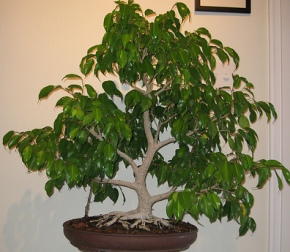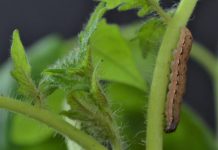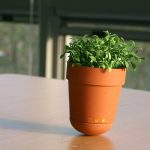 Have love towards dwarf plants? There are many varieties in natural dwarf plants, one such variety is Fiscus Bonsai.
Have love towards dwarf plants? There are many varieties in natural dwarf plants, one such variety is Fiscus Bonsai.
This perfect indoor bonsai should be kept indoors all round the year.
There are many varieties in fiscus bonsai- narrow leafed fiscus, weeping fiscus, dwarf fiscus.
These varieties of fiscus have small leaves and slow growing habits.
The fist thing to remember when growing Fiscus bonsai is; it is completely indoor plant and should not be left outdoors for a long time.
Some outdoor sunlight and fresh air is accepted but not mandatory. If you want to grow this bonsai plant then you should know different techniques for caring your plant.
Fiscus bonsai care:
Watering needs: The key for perfect growth of the fiscus is the plants should never grow dry. Extended dryness of the soil can lead to dryness of the tree. Daily check the soil and if there is need of water then do not hesitate in watering the plant.
The watering process is different from normal plants. The best way to water your fiscus bonsai is soak the plant up to the trunk in container filled with water for 5-10 min.
After you feel the plant has got enough water, remove the plant and drain the excess water. Repeat this several times until you feel the fiscus bonsai has received water thoroughly.
Light: This is an indoor plant and does not need direct sunlight. But it can be grown normally in direct sunlight also. But the suggestion of experts is it should be kept away from mid-day direct sunlight as the harsh sunlight can burn the tender leaves of the fiscus bonsai.
Direct morning and evening sunlight is great for the growth of the bonsai plants as this light is of low intensity.
Repotted: Any bonsai must be repotted one in two years and the same must be flowed for the fiscus bonsai plant. But it is better to check the pot once in a year to avoid unnecessary tensions.
The preferable time for repotting the fiscus bonsai is the spring season. After repotting the plant, keep the plant in shade for several weeks for the further growth of the plant.
Feeding: Fertilization is very necessary for the proper growth of the plant. Fertilization is necessary once in two weeks and this should continue all the growing season which spreads from the spring to the fall season.
Organic, chemical, seaweed fertilizers are preferred feeding on fiscus bonsai. Organic liquid fertilizers are the most favorable fertilizers for the proper growth of the bonsai.
Winter care: Fiscus bonsai is indoor plant and this should be maintained in mid-winter also. Too much exposure to cold can wither the leaves of the plant and make it dull. Exposure to sunlight is preferred in this season to avoid the withering.
When you follow these instructions properly, you can have a healthy fiscus bonsai plant.









Comments are closed.